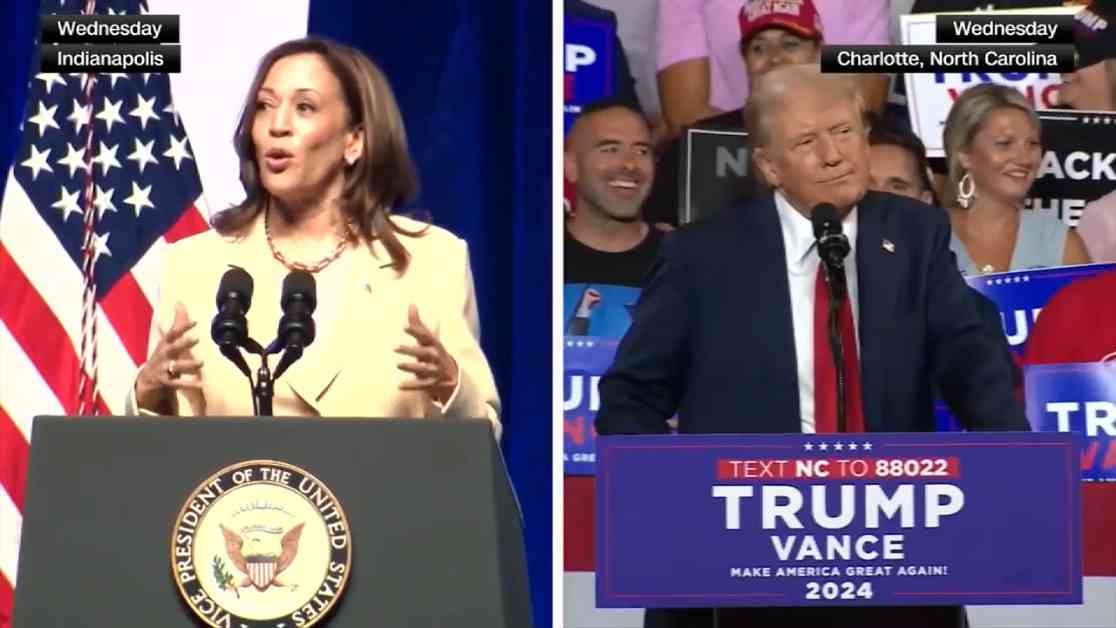The upcoming presidential election presents voters with a choice between two distinctly different visions for the future of the United States. Democrat Kamala Harris and Republican Donald Trump offer contrasting ideas on key issues that will shape the country’s direction and global standing for years to come.
Since taking over as the Democratic nominee from President Joe Biden, Harris has outlined her own policy agenda, which includes middle-class tax cuts, tax hikes on the wealthy and corporations, protection of abortion rights, and a strong focus on combating climate change. She also emphasizes the importance of upholding democratic values and the rule of law.
On the other hand, Trump has vowed to pursue a more aggressive stance on issues like immigration, tax cuts, tariffs, and energy policy. He aims to deport migrants living in the U.S. illegally, extend his previous tax cuts, and prioritize fossil fuels over renewable energy. Trump has also made controversial statements on transgender rights and foreign policy, including his approach to the conflict between Russia and Ukraine.
On the topic of abortion, Harris has called for federal legislation to guarantee access to abortion services, while Trump has advocated for leaving such decisions to the states. When it comes to climate and energy policy, Harris supports a mix of fossil fuel extraction and renewable energy sources, while Trump prioritizes domestic oil production and opposes climate initiatives like the Paris Agreement.
In terms of democracy and the rule of law, Harris has criticized Trump’s actions as a threat to the nation’s democratic institutions. Trump, in turn, has questioned the legitimacy of the 2020 election results and has made threats against his political opponents and the media.
Both candidates have outlined their positions on a range of issues, including immigration, LGBTQ+ rights, Israel and Gaza, NATO, trade, and taxes. Their contrasting views reflect the deep divides within American society and underscore the high stakes of the upcoming election.
As voters weigh their options, they will need to consider not just the candidates’ individual policy proposals, but also the broader implications of their leadership styles and approaches to governance. The outcome of the election will have far-reaching consequences that could shape the country’s trajectory for years to come.


